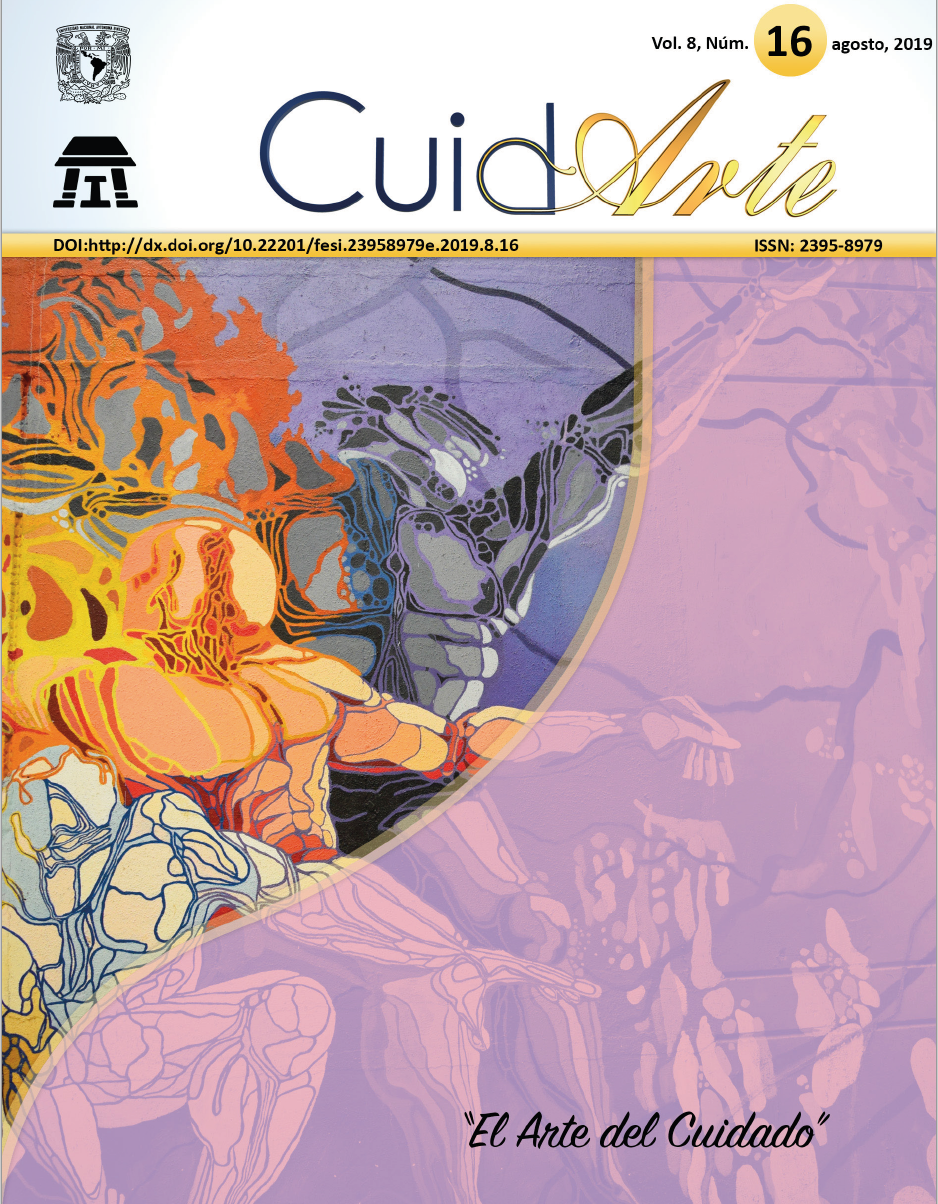Knowledge of testicular cancer among university students.
Main Article Content
Abstract
Testicular cancer represents the most common neoplasm among men aged 14 and 44. Various factors are those that contribute to the development of this pathology. Testicular self-examination and knowledge of the disease are considered a particularly effective health education intervention. Objective: The objective of this study was to identify knowledge about some aspects in relation to testicular cancer such as the information received, risk factors, symptomatology and self-examination in male students from two university entities. Methodology: Quantitative non-experimental, cross-sectional descriptive study, which was conducted at 100 university students between 20-25 years of age, 50 students of the Nursing Degree of the Faculty of Higher Studies Iztacala (FESI-UNAM) and 50 students of the Engineering degree of Control and Automation (ICA) of the National Polytechnic Institute. All of them studying between the seventh and eighth semester of the respective careers, selected in a non-probabilistic way for convenience. A 12-item questionnaire was applied which explored the student’s knowledge about testicular cancer. Results: 74% of nursing students and 20% of engineering have received information about testicular cancer. 28% of nursing students and 8% of engineering correctly identify the symptoms. Discussion: The results observed in this study present a similar pattern to that reported by different authors in relation to the subject, so it can be mentioned that the general dissemination of this neoplasm is limited. Conclusion: Nursing students have more knowledge about the pathology, however, they do not perform the self-exploration technique correctly. Most of ICA students know very little about this health problem and consequently, they do not know the correct self-exploration technique.
KEYWORDS: Knowledge; university students; testicular cancer.
Downloads
Article Details
References
(1) Puente J. ¿Qué es el cáncer y cómo se desarrolla? Sociedad española de oncología médica. [Internet] Disponible en: https://seom.org/informacion-sobre-el-cancer/que-es-el-cancer-y-como-se-desarrolla.
(2) Costilla MA, Guadarrama BB, Aragón CM, Gutiérrez RR, Morales OO, Cisneros CR, Pérez GO, López ZA, Carrillo PC, Morales PC. Cáncer Testicular, experiencia en el Centro Medico del Instituto de Seguridad Social del Estado de México y Municipios (ISSEMyM). Revista Mexicana de Urología. 2011; Vol. 71 (3):307-313.
(3) Sedano BJE, Mayorga GE, Garza SG, Cornejo DV, Uberetagoyena TD, et al. Epidemiologia de los tumores genitourinarios en una década. Revista Mexicana de Urología. 2016; 76 (3): 131–14.
(4) Ugurlu Z, Akkuzu G, AKarahan A, Beder A, Dogan N, Okdem S, Kav S. Testicular Cancer Awareness and Testicular Self-Examination Amog University Students. Asian Pacific Journal of Cancer Prevention. 2011; Vol 12: 695-698.
(5) Bourlon RM. Cáncer testicular: Estudio de características clínico patológico y pronósticos con análisis de las causas de muerte y requerimientos paliativos [Tesis de Médico Especialista]. Facultad de Medicina, UNAM. Ciudad Universitaria; 2012.
(6) Toasa BI. Conocimientos, actitudes y prácticas sobre autoexamen testicular en estudiantes de la carrera de enfermería. [Tesis de licenciatura]. Facultad de ciencias médicas. Cuenca, 2016.
(7) Ugboma HA, Aburoma HL. Public awareness of testicular cancer and testicular self-examination in academic environments: a lost opportunity. Clinics (Sao Paulo). 2011; 66 (17): 1125-8.
(8) Caradonti M, Blanco F, Silva E, Simhan J, Molina H, Varcasia D. Conocimiento de la patología testicular benigna y maligna en la población en general y de la conducta medica frente a la consulta. Revista argentina de urología. 2016; Vol. 81 (1): 28-33.
(9) Moreno A, Domínguez A, Alpuente C, Hernando A, Torres J, Cabrera J. Características de la forma de presentación del cáncer de testículo en hospitales públicos de la comunidad autónoma de Madrid, España. Actas españolas de urología. 2015; Vol 39 (1): 2-7.
(10) Reynoso NN, Meneses GA, Erazo VA, Escudero P, Kuri MP, Monar BA. Retos del desarrollo e implementación de programa nacional de control integral del cáncer en México. Salud Pública Mex. 2016; Vol 58 (2) 325-333.
(11) Onyiriuka A.N, Imoebe F.E. Testicular-self-examination among Nigerian adolescent secondary school boys: knowledge, attitudes and practices. Journal of Preventive Medicine and Hygiene. 2013; Vol. 54:163-166.

